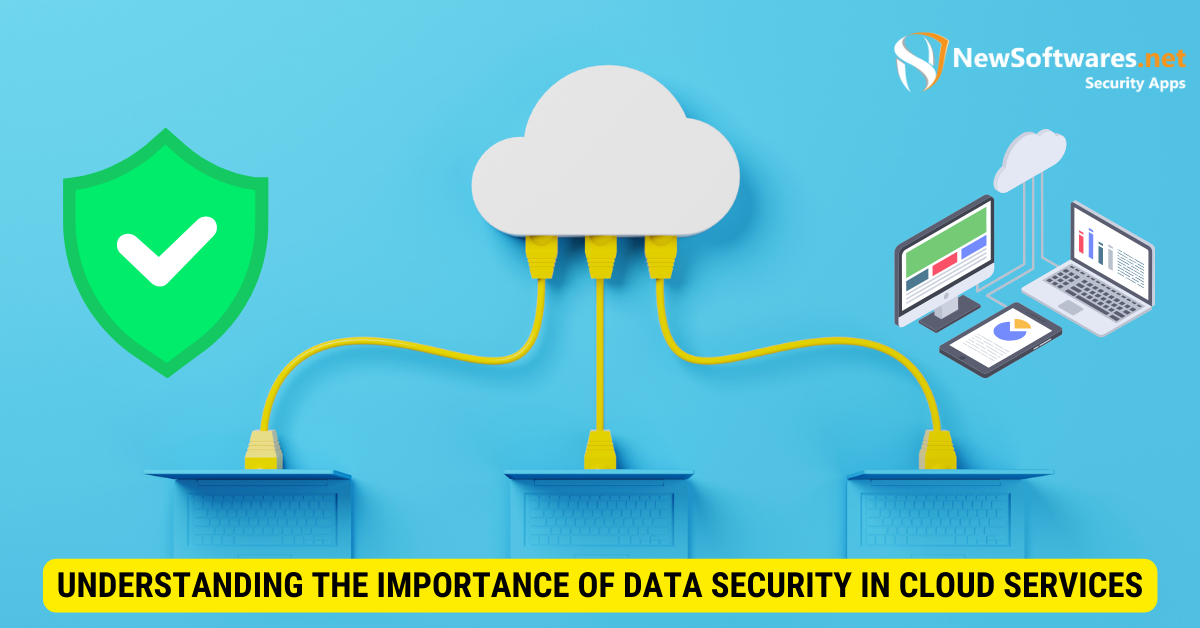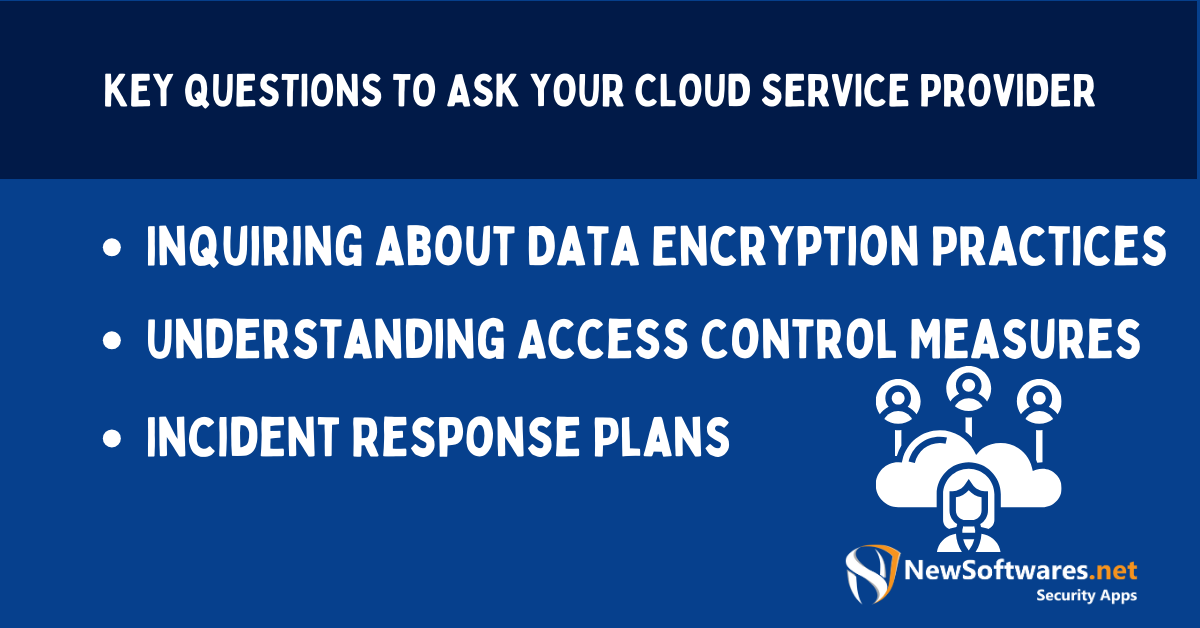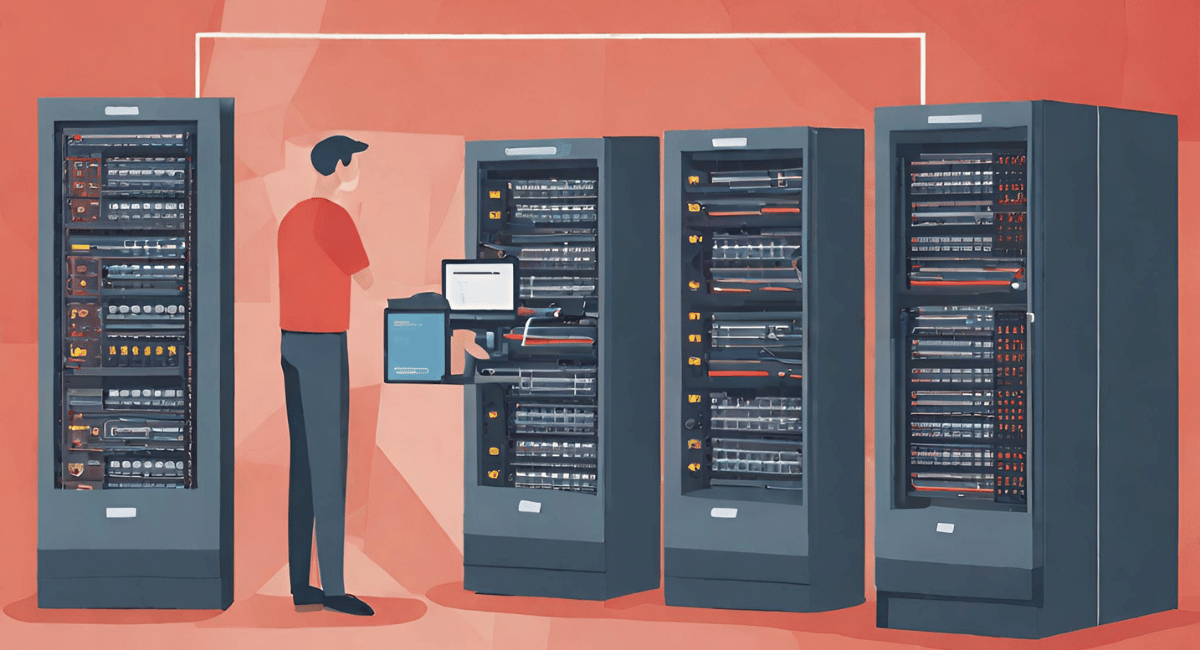Most importantly, it would be best to inquire about the provider’s encryption methods, compliance with data security standards, access controls, and contingency plans in case of data breaches.
In today’s digital age, data security is of utmost importance. With businesses and individuals relying heavily on cloud services for data storage and management, it becomes crucial to understand the security measures taken by cloud service providers. This article aims to shed light on the key questions you should ask your cloud service provider to ensure the safety of your data.
Understanding the Importance of Data Security in Cloud Services

To comprehend the significance of data security in cloud computing, it is essential to understand cloud services’ role in data management. Cloud services offer a convenient and scalable solution for storing and accessing data remotely. This, however, poses unique security challenges that need to be addressed.
One of the primary reasons why data security matters in cloud computing is the risk of unauthorized access. Since cloud services involve storing data on shared servers and networks, it becomes imperative to implement robust security measures to defend against potential cyber fears.
The Role of Cloud Services in Data Management
Cloud services offer businesses and individuals the skill to store and access their data from any device with an internet connection. This flexibility enables seamless collaboration and remote work. However, it also means data is vulnerable to unauthorized access or breaches.
Cloud service providers should have stringent security measures like data encryption, access controls, and incident response plans. These measures help safeguard sensitive information and mitigate the risks of storing data in the cloud.
Moreover, cloud services provide a centralized platform for data management, allowing organizations to streamline their operations. With cloud computing, businesses can efficiently store, organize, and evaluate vast amounts of data, leading to improved decision-making and enhanced productivity.
Additionally, cloud services offer scalability, allowing businesses to enlarge their storage capacity as their data needs grow easily. This scalability ensures that organizations can adapt to changing demands without the need for significant organizational savings.
Why Data Security Matters in Cloud Computing
Data security is crucial in cloud computing due to the significant amount of sensitive information stored in the cloud. This includes personal information, financial data, and intellectual property. Any unauthorized access or breach can severely affect businesses and individuals.
Furthermore, data breaches can result in legal and financial liabilities, reputation damage, and customer trust loss. It is, therefore, essential for organizations to prioritize data security when selecting a cloud service provider.
Cloud service providers must adhere to industry best practices and comply with related data protection regulations to safeguard the safety and privacy of their customer’s data. This includes regular security audits, vulnerability assessments, and employee training on data security protocols.
Moreover, organizations should implement a multi-layered approach to data security, combining encryption, access controls, and intrusion detection systems. This layered defense strategy helps prevent unauthorized access, detect potential threats, and respond effectively to security incidents.
In conclusion, data security plays a critical role in cloud computing. With the growing reliance on cloud services for data storage and management, organizations must prioritize robust security measures to protect sensitive info from unauthorized access or breaches. By implementing comprehensive security protocols and partnering with trustworthy cloud service providers, businesses can mitigate the dangers associated with storing data in the cloud and safeguard the confidentiality, integrity, and accessibility of their data.
Key Questions to Ask Your Cloud Service Provider

When evaluating the security of a cloud service provider, it is important to ask the right questions. This ensures that you clearly understand their security practices and capabilities. Here are some key questions to ask:
Inquiring about Data Encryption Practices
Ask the provider about their data encryption methods. Is data encrypted both in transit and at rest? How is encryption key management handled? This information will give you insights into the provider’s ability to protect your data from unauthorized access.
Data encoding is a critical aspect of cloud security. When data is encrypted, it is transformed into an unreadable format, making it difficult for illegal individuals to access and decipher. Encryption safeguards that even if someone manages to intercept your data, they won’t be able to make sense of it without the encryption key.
When evaluating a cloud service provider, it is important to inquire about their data encryption practices. It would help if you asked whether they encrypt data in transit and at rest. Encrypting data in transit means protecting it while being transmitted between your devices and the provider’s servers. Encrypting data at rest means it is protected while stored on the provider’s servers.
It would be best to ask about the provider’s encryption key management practices. Encoding keys are used to encrypt and decrypt data. It is important to understand how the provider manages these keys to ensure they are stored securely and only reach authorized individuals.
Understanding Access Control Measures
Access control is vital in preventing unauthorized users from accessing your data. Ask your provider about their access control measures, such as multi-factor verification and role-based access controls. Additionally, inquire about their employee access policies and procedures.
Access control is like a virtual gatekeeper determining who can access your data and what they can do. It helps safeguard that only authorized individuals can view, modify, or delete your data. When evaluating a cloud service provider, it is important to understand the access control measures they have in place.
One important aspect of access control is multi-factor authentication. This enhances an extra layer of security by necessitating users to provide multiple pieces of evidence to prove their identity. For example, in addition to a password, users might need to provide a fingerprint or a one-time confirmation code sent to their mobile device.
Role-based access controls are another important aspect of access control. This involves assigning specific roles to users and granting them access permissions based on their role. For example, an administrator might have full access to all data and settings, while a regular user might have limited access.
It is also important to inquire about the provider’s employee access policies and procedures. This includes understanding how the provider ensures that their employees only have access to the data and systems necessary for their job responsibilities. Employee access should be strictly controlled and monitored to avoid unauthorized access or waste of data.
Discussing Incident Response Plans
In the event of a security breach or occurrence, it is crucial to have a well-defined incident response plan in place. Ask your provider about their incident response procedures and how they handle security incidents. This will give you confidence in their ability to respond and mitigate any potential security threats quickly.
No system is completely immune to security incidents. It is important to understand how a cloud service provider handles such incidents to ensure they have the necessary processes and resources to respond effectively.
When discussing incident response plans with a provider, you should inquire about their procedures for detecting and responding to security incidents. This includes understanding how they monitor their systems for potential threats and how they investigate and contain incidents when they occur.
It is also important to ask about their communication and notification procedures. In a security incident, how will the provider communicate with you? Will they provide timely updates and notifications regarding the incident and its impact on your data? Clear and transparent communication is crucial during such situations.
Furthermore, it would help if you inquired about their efforts to learn from security incidents and improve security measures. Do they conduct post-incident reviews to identify areas for improvement? Are they proactive in implementing changes to prevent similar incidents from occurring in the future?
Evaluating the Provider’s Compliance with Security Standards
Compliance with industry security standards demonstrates a provider’s commitment to data security. Inquire about their compliance certifications, such as ISO 27001 or SOC 2. These certifications validate that the provider adheres to stringent security controls and practices.
Importance of Compliance Certifications
Compliance certifications validate a cloud service provider’s adherence to security standards. They demonstrate that the provider has implemented the necessary controls to protect customer data. Inquire about any specific compliance certifications that are relevant to your industry.
Assessing the Provider’s Security Audit Reports
Ask the provider if they undergo regular security audits conducted by third-party organizations. Reviewing these audit reports can provide valuable insights into the provider’s security posture and help you assess their commitment to data security.
The Role of Service-Level Agreements in Data Security
Service level agreements (SLAs) define the terms and conditions of the services provided by the cloud service provider. They consist of various clauses, including those related to data security. It is essential to understand the terms of your SLA to ensure that your data is adequately protected.
Understanding the Terms of Your Service Level Agreement
Review the SLA carefully to understand the provider’s responsibilities regarding data security. Look for clauses related to data protection, backup and recovery procedures, and disaster recovery plans. This will help you determine if the provider meets your data security requirements.
Negotiating Data Security Terms in Your Agreement
If the SLA does not adequately address your data security concerns, consider negotiating additional clauses. This may include specific data encryption requirements, regular security audits, or the right to conduct penetration testing on the provider’s infrastructure. Ensure that the negotiated terms are documented in the agreement.
The Impact of Geographic Location on Data Security
The geographic location where your data is stored can affect its security. Different countries have varying data protection laws and regulations. It is crucial to understand these implications, especially if your data contains sensitive or personal information.
Data Sovereignty and Its Implications
Data sovereignty refers to the concept that data is subject to the laws and regulations of the country in which it resides. It is important to inquire about the physical locations of the provider’s data centers and ensure they comply with the applicable data protection laws.
The Role of Data Centers in Security

Data centers play a crucial role in ensuring the security of your data. Please inquire about the provider’s data centers, including their physical security measures, redundancy, and backup procedures. Understanding these aspects will give you confidence in the overall security of the provider’s infrastructure.
Key Takeaways
- Ask about encryption methods used.
- Find out about compliance with data protection laws and security standards.
- Understand their backup and data recovery plans.
- Know who has access to your data and the controls in place.
- Ask about their contingency plans for data breaches.
FAQs
What is data encryption?
Data encryption translates data into a code to prevent unauthorized access.
What are data protection laws?
These are laws designed to protect the privacy and integrity of data. Examples include GDPR in Europe and CCPA in California.
What is a backup and recovery plan?
It is a plan that details how your data will be backed up regularly and restored in the case of data loss.
Who should have access to my data?
Only authorized personnel should have access to your data. Ask your provider about their access control measures.
What should a contingency plan include?
A contingency plan should outline the steps to be taken in case of a data breach, including notifications, investigation, and data recovery.
Conclusion
Asking the right questions about data security when selecting a cloud service provider is essential. It helps you make an informed decision and ensures your data remains secure in the cloud. By understanding the importance of data security, evaluating compliance with security standards, and considering the impact of geographic location, you can safeguard your valuable information and protect your business from potential risks.
